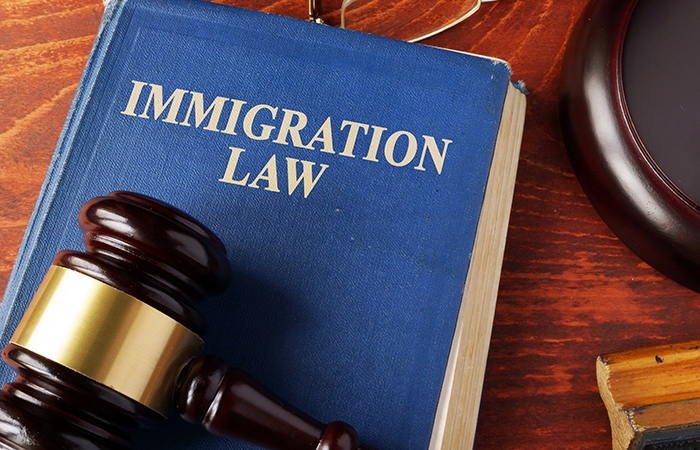
Do you completely understand all the visa conditions listed on your Temporary Skill Shortage (TSS) visa? No? Not to worry! This article has been prepared to ensure you understand the rules. It’s also important to mention, if you breach any of your visa conditions, your TSS visa may actually be cancelled and may affect future Australian visa applications such as permanent residence.
Health Insurance
As part of your visa grant, you will be financially responsible for any health debts you incur in Australia. You and any included dependent family members will therefore need to hold the appropriate level of health insurance to mitigate your financial risks. Are there any expectations to this rule? If you are eligible and have successfully applied for Medicare coverage, you won’t need to hold health insurance. However, it’s important to understand the pros and cons for obtaining private health insurance versus Medicare. Also, Medicare coverage is only available to nationals from Belgium, Finland, Italy, Malta, Netherlands, New Zealand, Norway, Ireland, Slovenia, Sweden and the United Kingdom.
To compare the benefits and for further information regarding the level of coverage needed for private health insurance & Medicare, please refer to the following weblinks:
Nominated occupation work requirements
You are generally only allowed to work for your sponsoring employer or an associated entity in your approved nominated occupation. It is therefore important to review the occupation which is listed on your visa approval letter under the title “Position details – Nominated occupation”. If your sponsoring company is looking to change your role or if you are going to be promoted, you will need to check with your Migration Agent/Lawyer to ensure it doesn’t breach any rules. More importantly, the Migration Agent/Lawyer is able to check whether the change in role will affect your eligibility for Australian permanent residence at a later date. Where the change of duties is only temporary and will not exceed 60 consecutive days, the Department may allow the arrangement, however it’s always advisable to check with your assigned Migration Agent/Lawyer.
Temporary layoffs available
If a TSS visa holder is temporarily laid off due to a downturn in the industry in which they are employed, they may be considered to have ceased employment and the visa holder may be in breach of their visa condition if:
- The Department has not been advised accordingly; and
- If more than 60 consecutive days has elapsed since layoff.
To avoid unintended consequences of premature cancellation due to a temporarily layoff due to seasonal downturn, your Migration Agent/Lawyer should be consulting with the Department to explain the circumstances of the case.
Is unpaid leave allowed?
TSS visa holders on unpaid leave (e.g. study or sabbatical leave; holiday leave without pay; sick leave without pay; maternity or paternity leave; parental/carer/personal leave) or not considered to be in breach of their visa condition solely on the basis of this unpaid leave. This is because the TSS visa holders may be considered to continue to be in the employment of the sponsor (although not working or receiving a salary). Under migration policy, this period should not, however, generally exceed 3 months unless:
- The sponsor is obliged to provide the leave under Australian workplace laws (e.g. in connection with maternity leave); or
- Exceptional circumstances apply (e.g. family illness). Your Migration Agent/Lawyer would need to consult with the relevant section at the Department to assess whether your particular circumstances would be accepted.
It’s also important to understand, if you are employed under a Company Specific or On-Hire Labour Agreement (LAs), you will need to review the specific terms which was agreed with the Department in relation to unpaid leave provisions, as LAs generally does not permit unpaid leave.
Are you allowed to work overseas?
In certain circumstances, a TSS visa applicant may be able to undertake work outside of Australia where it is considered in the usual course of their business and the applicant remains an employee of the Australian firm. For instance, in the resources and mining fields, it is common practice to have ‘fly in/fly out’ arrangements. However, if there are significant periods of employment spent overseas, the Department may have concerns that the position being nominated is not a genuine position as the applicant may not be primarily working in the nominated position. The immigration officer will have grounds to cancel the TSS visa if they are satisfied that the TSS visa holder:
- Did not have a genuine intention to perform the occupation for which they were nominated
- Has ceased to have a genuine intention to perform that occupation
What happens if you or your employer wants to end employment?
If you or your sponsoring employer wishes to terminate your employment, the Department of Immigration will give you 60 to 90 days (depending when your visa was approved) to:
- Find another employer to take over the sponsorship (also known as a nomination transfer application)
- Apply and be granted another visa (e.g. this could be a Visitor Visa to simply remain in Australia as a tourist)
- Make appropriate arrangements to depart Australia.
Can I undertake a second job or volunteer work?
In general, the primary TSS visa holder is not allowed to undertake a second job, however there are certain occupations which are exempted from this rule such as General Medical Practitioners or CEOs/General Managers. In terms of voluntary unpaid work, this may be approved on a case-by-case basis. The work would usually need to be undertaken with a charity or not-to-profit based organisations.
Work related conditions:
On a final note, it’s important to understand the following key deadlines:
- If you are in Australia, you must commence work within 90 days of your visa being granted.
- If you are overseas, you must commence work within 90 days from when you first arrive in Australia. There is no particular requirement for the visa holder to arrive in Australia within a specific time frame, other than before their visa expires. However, where the arrival of a visa holder is significantly delayed, they and their sponsor should be counselled in regard to the continued need for the TSS visa and whenever it is the appropriate visa for their circumstances.
- You must not cease employment for more than 60 consecutive days.
- If required, you must hold any important work-related licenses, registration and memberships.




